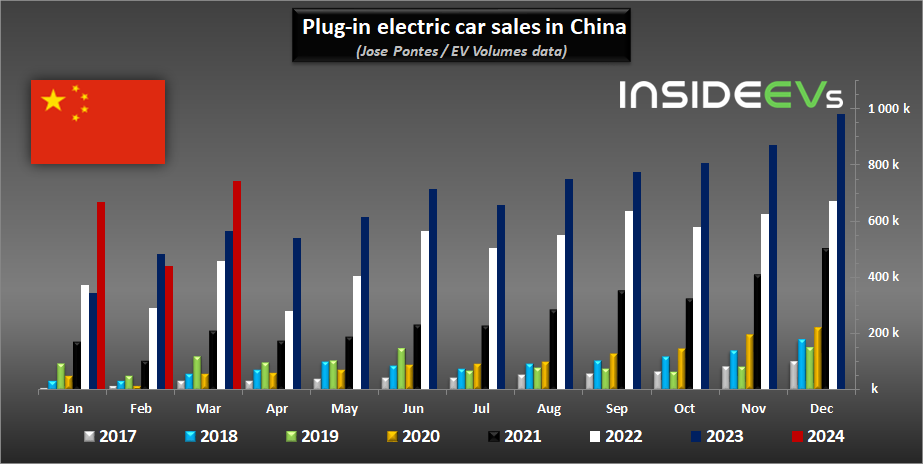Luxury Car Sales In China: Why BMW And Porsche Face Difficulties

Table of Contents
The Rise of Domestic Chinese Luxury Car Brands
The Chinese luxury car market is experiencing a dramatic surge in competition from homegrown brands like Nio, Xpeng, and Li Auto. These domestic players are rapidly gaining market share, challenging the dominance of established international brands. Their success stems from several key advantages:
-
Technological Prowess: Chinese brands are leveraging cutting-edge technology, integrating advanced features such as sophisticated infotainment systems, autonomous driving capabilities, and over-the-air software updates that appeal to tech-savvy Chinese consumers. For example, Nio's battery swap technology offers a unique and convenient solution to range anxiety, a major concern for EV buyers.
-
Understanding Local Preferences: Unlike international brands, domestic manufacturers possess an intimate understanding of Chinese consumer preferences, allowing them to tailor their vehicles and marketing strategies accordingly. This includes incorporating features specifically desired by the Chinese market, like personalized cabin configurations and advanced air purification systems.
-
Competitive Pricing: Domestic brands often offer competitive pricing strategies, making luxury vehicles more accessible to a broader segment of the Chinese consumer base. This price competitiveness puts pressure on established brands to lower their prices or risk losing market share.
-
Marketing Strategies: Chinese brands are masters of digital marketing, leveraging social media platforms like WeChat and Weibo effectively to connect with younger, tech-savvy consumers. Their targeted campaigns often feature influencers and celebrities popular within China, significantly boosting brand awareness and driving sales.
-
Examples: The success of models like the Nio ET7, Xpeng P7, and Li Auto One highlights the growing capabilities and appeal of these domestic luxury EVs. Market share gains by these brands are consistently reported in industry analyses, showcasing the significant threat they pose to established players.
Shifting Consumer Preferences in the Chinese Luxury Car Market
The preferences of Chinese luxury car buyers are rapidly evolving. Technological features are no longer a luxury but an expectation, with consumers demanding advanced driver-assistance systems, seamless connectivity, and sophisticated infotainment experiences. This shift is driven by the younger generation of Chinese consumers, who are highly digitally engaged and value technological innovation.
-
Data on Consumer Preferences: Recent surveys reveal a strong preference among Chinese luxury car buyers for electric vehicles (EVs), autonomous driving features, and personalized customization options. The demand for sustainable and environmentally friendly vehicles is also on the rise.
-
Appealing Features: Features like large touchscreens, voice-activated controls, advanced driver-assistance systems (ADAS), and over-the-air (OTA) software updates are particularly attractive to Chinese luxury car buyers.
-
Social Media Influence: Social media platforms play a significant role in shaping consumer opinions and preferences. Influencer marketing and online reviews heavily influence purchase decisions, making a strong online presence crucial for success.
Economic Headwinds and Geopolitical Factors
The Chinese luxury car market is not immune to broader economic and geopolitical influences. Economic slowdowns, trade tensions, and fluctuating currency exchange rates all impact consumer confidence and purchasing power. Government regulations on emissions and fuel efficiency also present significant challenges for luxury car manufacturers.
-
Economic Impact: Economic uncertainty can significantly reduce consumer spending on luxury goods, impacting sales figures for high-end vehicles. Data shows a direct correlation between economic growth and luxury car sales in China.
-
Government Regulations: Stringent emission standards and fuel efficiency regulations are forcing manufacturers to invest heavily in electric vehicle technology and adapt their production strategies to meet these requirements.
-
Geopolitical Instability: Trade wars and geopolitical tensions can disrupt supply chains, impacting the availability of parts and components and potentially leading to increased production costs. This can affect pricing and ultimately impact sales.
Challenges in Adapting to the Unique Chinese Market
Foreign luxury brands face significant challenges in adapting to the unique cultural nuances and consumer expectations of the Chinese market. This includes understanding local marketing practices, providing exceptional after-sales service, and establishing a robust and efficient dealership network.
-
Marketing and Communication: Marketing strategies must be tailored to resonate with the Chinese consumer, taking into account cultural sensitivities and preferred communication styles. What works in Western markets may not translate effectively in China.
-
After-Sales Service: Providing high-quality after-sales service and customer support is paramount in building trust and loyalty among Chinese consumers. A positive customer experience is crucial in maintaining brand reputation and driving repeat business.
-
Dealership Networks: Establishing a comprehensive and efficient dealership network across China's vast geography is essential for reaching potential customers and providing convenient access to service and support.
Conclusion: Overcoming the Hurdles in the Chinese Luxury Car Market
The Chinese luxury car market presents a complex and dynamic environment for both established international brands and rising domestic players. BMW and Porsche, along with other international brands, face significant challenges in maintaining their market share amidst intensifying competition, shifting consumer preferences, and external economic and geopolitical factors. Understanding these challenges – the rise of domestic brands, evolving consumer preferences, economic headwinds, and the need for cultural adaptation – is crucial for success. To stay ahead in the dynamic Chinese luxury car market, brands need to continuously adapt. Learn more about navigating the complexities of this crucial market by researching current trends in luxury car sales in China.

Featured Posts
-
 The Rich History Of Cassis Blackcurrant
May 21, 2025
The Rich History Of Cassis Blackcurrant
May 21, 2025 -
 The Future Of Aj Styles In Wwe Contract Renewal Update
May 21, 2025
The Future Of Aj Styles In Wwe Contract Renewal Update
May 21, 2025 -
 Moncoutant Sur Sevre Clisson Pres D Un Siecle De Diversification
May 21, 2025
Moncoutant Sur Sevre Clisson Pres D Un Siecle De Diversification
May 21, 2025 -
 Significant Drop In Bp Chief Executives Salary Down 31
May 21, 2025
Significant Drop In Bp Chief Executives Salary Down 31
May 21, 2025 -
 Analyzing Liverpools Win Arne Slot And Luis Enriques Perspectives
May 21, 2025
Analyzing Liverpools Win Arne Slot And Luis Enriques Perspectives
May 21, 2025
